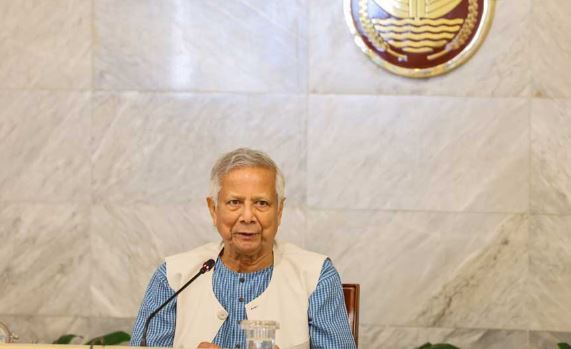In a significant development, Chief Adviser Muhammad Yunus has revealed that the upcoming 13th parliamentary elections will be based on a new "Charter of Public Uprising" that will be shaped through discussions with all political parties.
This announcement follows the submission of reports from four reform commissions.
On Wednesday, January 15, Yunus was presented with reports from the Election System, Police, Constitution, and Anti-Corruption Commission Reform Commissions at his office in Tejgaon.
After receiving the reports, a meeting was held to summarize the findings.
The Chief Adviser emphasized that the discussions surrounding these reports would lay the foundation for the next steps in the election process.
“We’ve just started a new chapter with the submission of these reports,” Yunus said.
“The discussions will begin now, and we will see if everyone is in agreement and whether the promises made in these reports are being kept. This is not a one-sided dream; it’s about bringing the people’s dreams into the conversation.”
He further explained that the goal is to create a unified vision, even if complete agreement is not possible.
“Not everyone will agree on everything, but we will come to a common understanding on most points,” Yunus added.
Yunus continued by explaining the importance of this process. “This isn’t something imposed from outside; it’s a natural development from within,” he said.
“The discussion will be led by the reform commissions, who have been working on behalf of the people. Together, we will establish a new charter for the public uprising, which will serve as the foundation for the 13th parliamentary election.”
According to Yunus, this new charter will not just be an official document, but a commitment to the people of Bangladesh.
“This charter will guide us in everything, from the elections to all national policies,” he said.
“We want all parties to sign on to this charter. It’s our national commitment, not just a party commitment. This is something for the entire nation.”
When asked about the timing of the next election, Yunus explained that it would depend on political consensus and the completion of necessary reforms.
However, he suggested that the 13th parliamentary elections could be held within the next one to one and a half years.
“The election will take place based on the new charter,” Yunus confirmed.
In a separate statement, the opposition BNP expressed their wish for the election to be held between July and August of this year.
Yunus also emphasized the significance of the charter in ensuring the continuity of the dream for a better Bangladesh.
“This charter must remain in our hands, because it represents the continuation of the dream for the nation,” he said.
“If the charter slips away, the dream will lose its continuity. But if we hold on to it, the dream will be realized.”
In conclusion, Yunus said the next government would be expected to follow the new charter, ensuring that the nation progresses in line with the people’s hopes and dreams.
“Today’s reports are part of a historical journey, and we must continue to move forward with this vision in mind,” he said.
The meeting also saw the participation of leaders from the various reform commissions, including Professor Ali Riaz (Constitutional Reform Commission), Professor Badiul Alam Majumdar (Election System Reform Commission), Safar Raj Hossain (Police Administration Reform Commission), and Iftekharuzzaman (Anti-Corruption Commission Reform Commission).











-20260226080139.webp)





-20260225072312.webp)










-20260219054530.webp)
-20260224075258.webp)





-20260221022827.webp)